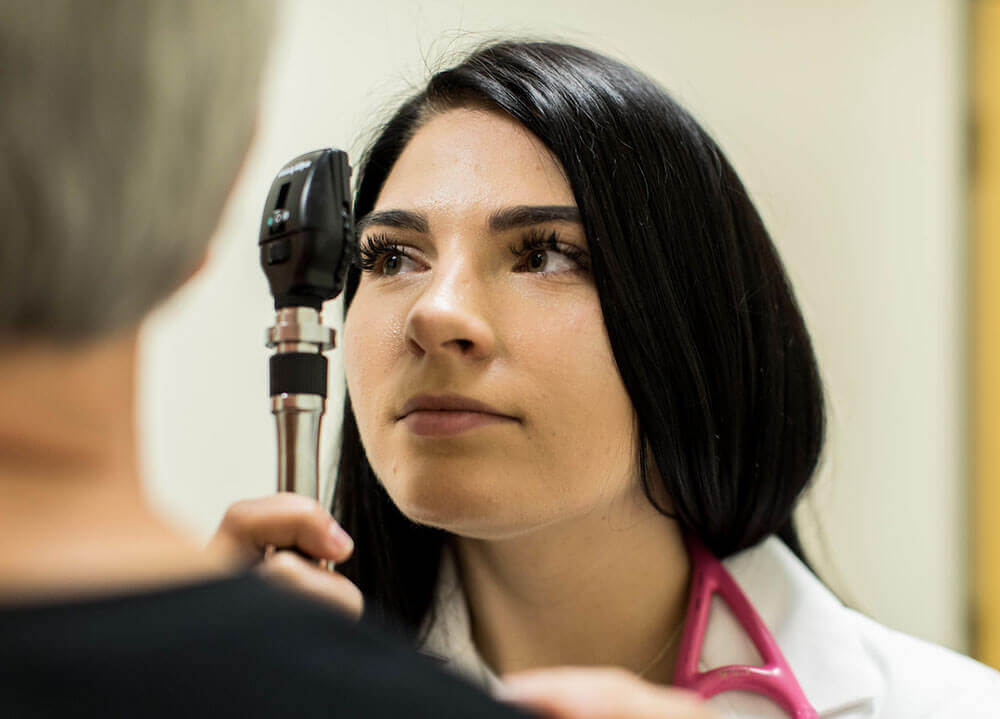
This fully online program provides experienced nurses with a deeper understanding of the gaps in care affecting populations of interest on a local, national and global scale.


This fully online program provides experienced nurses with a deeper understanding of the gaps in care affecting populations of interest on a local, national and global scale.

Our online Post-Master's Doctor of Nursing Practice in Care of Populations prepares working nurses to elevate the level of care and improve the experience of patients and their loved ones. By providing advanced instruction on how to manage health systems, control organizational dynamics and expand the role of providers in population health management settings, this program prepares graduates to use evidence to change practice in large-scale healthcare organizations.
This program was designed specifically for working nurses and can be completed entirely online without any on-campus presence. Courses are delivered in an asynchronous format, allowing you to balance coursework into your schedule as you see fit.

Longley’s extensive medical career began after he served in the U.S. Army and the Connecticut Army National Guard, leaving as a corporal and as a second lieutenant. During his stint in the U.S. Army, Longley served in Operation Desert Storm. He also repaired helicopters.
Longley decided to apply his GI Bill benefits toward nursing school. After earning his bachelor’s degree, he began work in the post-surgical floors of the surgical intensive care unit at Yale New Haven Hospital. After acting as an educator in the ICU, Longley was promoted to nurse manager.
The position’s demands and hours compounded by the responsibility of a family with two young children proved to be overwhelming. Longley pivoted professionally and started a window treatment and blind company.
During this time, Longley earned a doctorate in nursing practice from Quinnipiac. His learnings continue to resonate.
“My studies helped me realize how complex our healthcare system is. I also learned how to build relationships to be able to articulate your argument in the best light to help to find common ground between different perspectives,” he said.
Now a clinical assistant professor of nursing, Longley hopes to endow these and other lessons to the next generation of nurses.
“I try to teach students to not be stressed, but to remain focused. I want them to learn the concept of nursing and how to care of people among the larger aspects of industry,” he said. “As long as you stay focused, you can continue to make progress.”
At Quinnipiac, the privilege of teaching is enriched by networking opportunities with like-minded people interested in evolving the medical field on a wider scale, said Longley.
The Bachelor of Science in Nursing program, the Master of Science in Nursing program and the Doctor of Nursing Practice program at Quinnipiac University are accredited by the Commission on Collegiate Nursing Education, 655 K Street, NW, Suite 750, Washington, D.C. 20001, 202-887-6791.
Many of the nursing programs within Quinnipiac University’s School of Nursing also are endorsed by the American Holistic Nurses Credentialing Corporation. Graduates of these programs are eligible to take the appropriate national exam to become board-certified holistic nurses at the basic or advanced level of nursing:
Bachelor’s degree (HNB-BC)
Nurse practitioner graduate degree (APHN-BC or AHN-BC)
Our graduate admissions representatives are here to answer any questions you may have and help you navigate the application process.